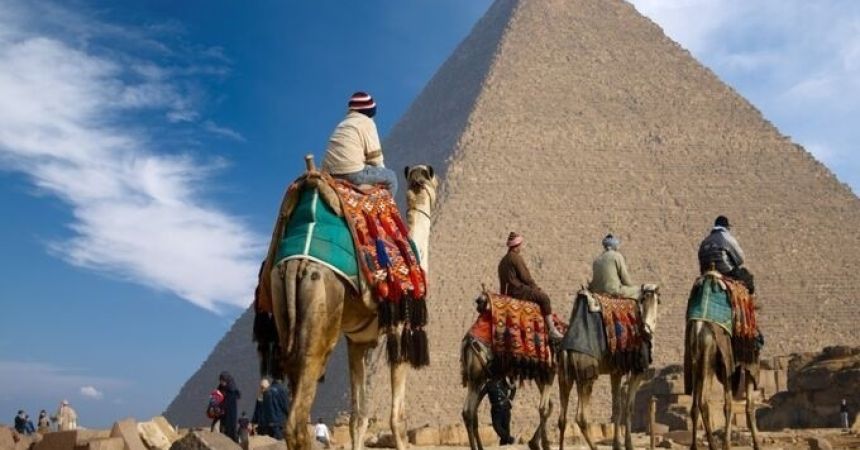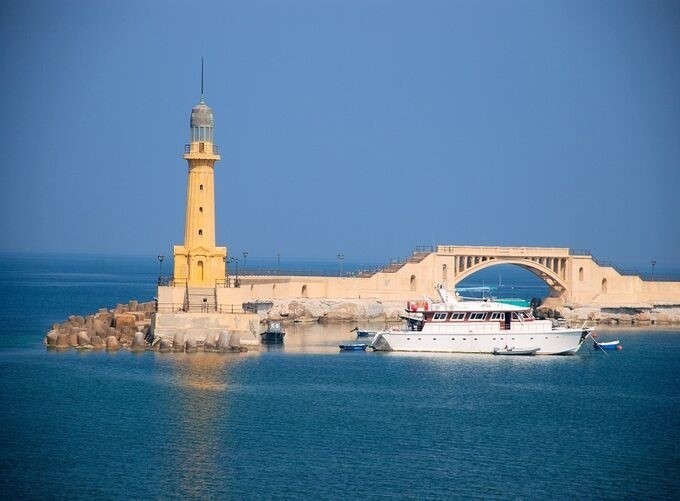
Egypt – Ancient Mysteries and Scenic Beauty
Egypt, often described as the land of ancient wonders and timeless mysteries, stands as a beacon of historical and cultural significance. From its monumental pyramids to its mystical temples and vibrant modern culture, Egypt offers a journey through millennia of history. This comprehensive guide delves into the essence of Egypt, exploring its rich heritage, key historical sites, cultural experiences, and practical tips for travelers.
Introduction to Egypt
1.1. A Brief Historical Overview
Egypt's history stretches back over 5,000 years, making it one of the world's oldest continuous civilizations. The ancient Egyptians were known for their extraordinary achievements in architecture, art, and science. The civilization flourished along the banks of the Nile River, which provided fertile land and was central to their way of life.
1.2. Geography and Climate
Egypt is located in northeastern Africa, bordered by the Mediterranean Sea to the north, Libya to the west, Sudan to the south, and Israel and the Gaza Strip to the northeast. The country features a predominantly desert landscape, with the Nile River providing a lush, green oasis amidst the arid surroundings. Egypt experiences a hot desert climate, with mild winters and extremely hot summers.
1.3. Cultural Heritage in Egypt
Trip to Egypt's cultural heritage is a tapestry woven from its ancient past and modern influences. The country is known for its diverse cultural traditions, including its vibrant arts, music, and cuisine. The ancient Egyptian legacy continues to captivate the imagination of people worldwide, while contemporary Egypt presents a blend of traditional and modern lifestyles.
Iconic Ancient Wonders of Egypt
2.1. The Pyramids of Giza
The Pyramids of Giza, located on the Giza Plateau near Cairo, are perhaps the most iconic symbols of ancient Egypt. They include the Great Pyramid of Giza, built for Pharaoh Khufu, and the pyramids of Khafre and Menkaure. The Great Pyramid, one of the Seven Wonders of the Ancient World, remains a testament to the engineering prowess of the ancient Egyptians.
2.1.2. Notable Features
- Great Pyramid of Giza: The largest of the three pyramids, originally standing at 146 meters (481 feet), was constructed with precision and alignment that continue to intrigue scholars.
- Sphinx: The Great Sphinx of Giza, with the body of a lion and the head of a pharaoh, is a monumental sculpture that guards the pyramids and symbolizes strength and wisdom.
2.2. The Temple of Karnak
The Temple of Karnak, located in Luxor, is one of the largest religious complexes ever constructed. Dedicated primarily to the god Amun-Ra, the temple complex covers approximately 100 hectares and features a vast array of structures, including pylons, halls, and obelisks.
2.2.2. Notable Features
- Hypostyle Hall: An impressive hall with 134 massive columns, each adorned with intricate carvings and hieroglyphics.
- Obelisks: Several towering obelisks, including those erected by Pharaoh Hatshepsut, stand as testaments to the grandeur of ancient Egyptian architecture.
2.3. The Valley of the Kings
The Valley of the Kings, located on the west bank of the Nile near Luxor, served as the royal cemetery for New Kingdom pharaohs. The valley is renowned for its richly decorated tombs, which offer a glimpse into the beliefs and practices surrounding the afterlife.
2.3.2. Notable Tombs
- Tomb of Tutankhamun: Discovered in 1922 by Howard Carter, this tomb is famous for its intact treasures, including the golden funerary mask of Tutankhamun.
- Tomb of Ramses VI: Known for its elaborate decorations and well-preserved texts, this tomb provides significant insights into royal funerary practices.
2.4. The Temple of Abu Simbel
The Temple of Abu Simbel, located in southern Egypt near the Nubian border, is a pair of massive rock-cut temples built by Ramses II. The temples were relocated in the 1960s to save them from the rising waters of Lake Nasser.
2.4.2. Notable Features
- Great Temple: The larger of the two temples, dedicated to Ramses II and the gods Amun, Ra-Horakhty, and Ptah, features colossal statues of Ramses II at the entrance.
- Small Temple: Dedicated to Hathor and Nefertari, this temple is renowned for its beautifully carved reliefs and statues.
Exploring Modern Egypt
3.1. Cairo
Cairo, Egypt's bustling capital, is a city that blends ancient history with modernity. It is home to the Egyptian Museum, which houses an extensive collection of artifacts, including those from Tutankhamun's tomb.
3.1.2. Key Attractions
- Egyptian Museum: Located in Tahrir Square, the museum features an unparalleled collection of ancient Egyptian antiquities, including mummies, sculptures, and jewelry.
- Islamic Cairo: This historic area is known for its stunning Islamic architecture, including the Sultan Hassan Mosque and Al-Azhar Mosque.

3.2. Alexandria
Alexandria, located on the Mediterranean coast, is a city with a rich history influenced by Greek, Roman, and Egyptian cultures. It was founded by Alexander the Great and became a major center of learning and culture in antiquity.
3.2.2. Key Attractions
- Bibliotheca Alexandrina: A modern library that pays tribute to the ancient Library of Alexandria, it is a major cultural center with a vast collection of books and manuscripts.
- Catacombs of Kom el-Shoqafa: An extensive necropolis with a blend of Egyptian, Greek, and Roman architectural styles, featuring intricate tombs and chambers.
3.3. Aswan
Aswan, located in southern Egypt, is known for its beautiful Nile views and historic sites. It is a gateway to the temples of Abu Simbel and offers a more relaxed atmosphere compared to the hustle of Cairo.
3.3.2. Key Attractions
- Philae Temple: Dedicated to the goddess Isis, this temple was relocated to Agilkia Island due to the construction of the Aswan High Dam.
- Nubian Village: A vibrant village where visitors can experience Nubian culture and traditions.
Cultural Insights in Egypt
4.1. Ancient Egyptian Religion
Ancient Egyptian religion was polytheistic, with a pantheon of gods and goddesses who played significant roles in the creation, maintenance, and afterlife. The beliefs were reflected in the elaborate temples, tombs, and rituals that have survived through the millennia.
4.2. Language and Script
The ancient Egyptians used several scripts, including hieroglyphics, hieratic, and demotic. Hieroglyphics were primarily used for monumental inscriptions, while hieratic and demotic were used for everyday writing.
4.3. Egypt Cuisine
Egyptian cuisine features a variety of flavors and ingredients, with dishes such as koshari (a mix of rice, lentils, and pasta), falafel, and shawarma. Traditional dishes often include fresh vegetables, legumes, and aromatic spices.
4.4. Festivals and Traditions in Egypt
Egyptian festivals and traditions are deeply rooted in its history and culture. Key festivals include Ramadan, Eid al-Fitr, and the Coptic Christmas. Traditional music, dance, and crafts are also an integral part of Egyptian culture.
Practical Tips for Travelers
5.1. Travel Documentation
- Visa Requirements: Most visitors to Egypt will need a visa. Tourist visas can be obtained from Egyptian consulates or upon arrival at certain airports.
- Travel Insurance: It is advisable to have travel insurance that covers health, accidents, and theft.
5.2. Health and Safety
- Health Precautions: Stay hydrated and avoid drinking tap water. It's also recommended to have vaccinations for diseases such as hepatitis and typhoid.
- Safety: Egypt is generally safe for tourists, but it’s important to stay updated on local conditions and follow travel advisories.
5.3. Transportation
- Getting Around: Public transportation options include buses, taxis, and trains. In major cities, rideshare services like Uber and Careem are also available.
- Domestic Travel: Flights, trains, and buses connect major cities and tourist destinations across the country.
5.4. Currency and Costs
- Currency: The Egyptian Pound (EGP) is the official currency. It is advisable to carry cash for smaller purchases, although credit cards are widely accepted in larger establishments.
- Budgeting: Costs can vary widely depending on the type of accommodation, dining preferences, and activities. Egypt offers options for all budget ranges, from luxury resorts to budget hostels.
Egypt Holiday Adventures: Pyramids and More
Egypt, with its rich tapestry of ancient wonders and timeless mysteries, offers an unparalleled journey through Egypt. From the grandeur of the pyramids and the intricacies of ancient temples to the vibrant culture of its modern cities, Egypt provides a unique and captivating travel experience. Whether you are an avid historian, an adventurous explorer, or a cultural enthusiast, Egypt’s treasures promise to leave you with lasting memories and a deeper appreciation for this remarkable land.



